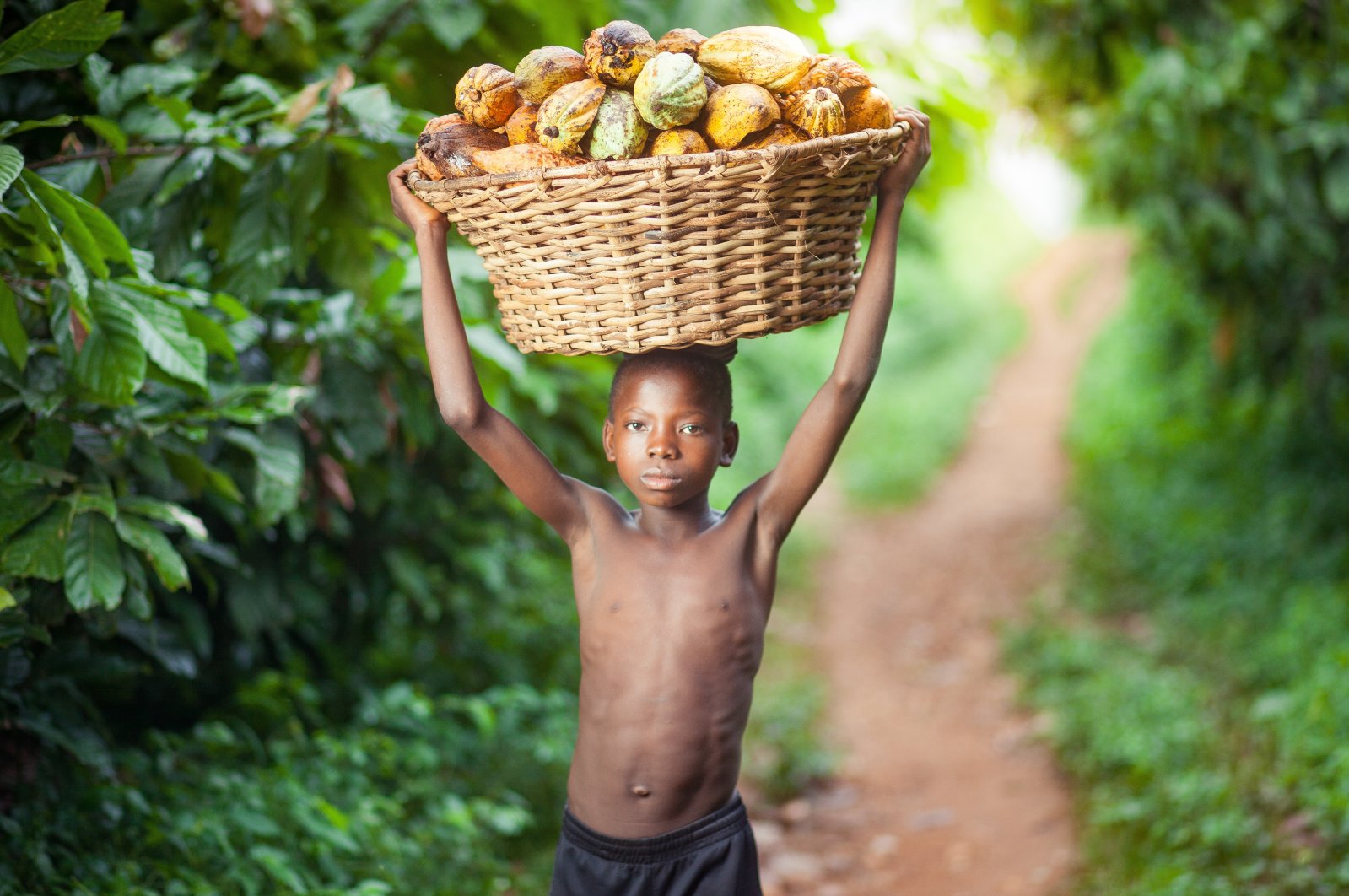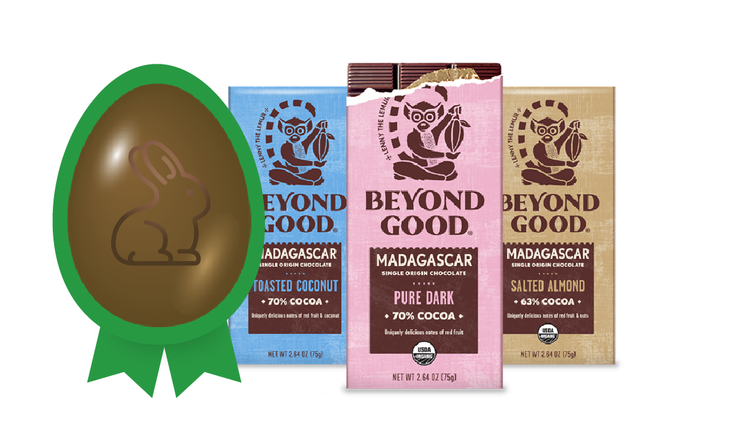Climate Change & Energy
2022 Chocolate Score Card: Millions of children still trapped in Child Labour
Source: ghenvironment.com - April 21, 2022

A little boy carrying a basket of harvested cocoa pods, Mankranso, Ghana. Credit Shutterstock photo
The 2022 Chocolate score card survey has revealed that, there is a long way to go in addressing the issue of approximately 1.56 million children caught up in child labour in the cocoa sector.
This according to the survey, is in spite of repeated calls to address the issue and following a major academic study in 2020 revealing the scope of the problem.
A statement by the organisers of Chocolate score card said “Just this week footage emerged of children working with machetes on a cocoa farm that supplies Mondelez, owner of Cadbury”.
“We are not at all surprised that a journalist found child labourers on farms allegedly supplying to Mondelez. Our concern is that we are not finding more of these children,” says Fuzz Kitto of Be Slavery Free, the Australia-based charity which coordinated the Chocolate Scorecard.
“Much of the child labour found in West Africa is the hazardous form of child labour, where a child is in danger through such things as carrying heavy loads, using dangerous equipment, such as machetes, or being exposed to chemicals.”
“Every year the chocolate industry’s big players assure us that they’ll do something about child labour and the huge numbers of children being exposed to chemicals that burn their skin and affect their breathing. We say that progress is too slow and they have to stop poisoning children to produce chocolate.”
“If companies started paying farmers properly, so they can get a living income, there would be fewer children forced to work in cocoa production and fewer farmers cutting corners with dangerous pesticides.” The Chocolate Scorecard focuses on the production and supply chains that start in West Africa, where around 75% of the world’s cocoa is produced.
“We’re often asked what chocolate is the most ethical to eat, so we always set out to name and fame rather than just name and shame. That way consumers get to see what better looks like,” added Fuzz Kitto.
The annual Chocolate Scorecard
The annual Chocolate Scorecard surveyed 38 of the world’s largest chocolate companies, including chocolate traders, processors and manufacturers.
The 38 companies were rated on the six most pressing sustainability issues facing the chocolate industry: traceability and transparency; living income policies; child labour; deforestation and climate; agroforestry; and agrichemical management.
The companies selected ranged from the largest cocoa traders and chocolate manufacturers in the industry to smaller innovative companies. Each company received an “egg score” for each individual category with the “good egg” prize awarded to corporate accountability and responsibility companies, while “rotten egg” was awarded to a company that was not only unresponsive to questionnaires but also had demonstrated problematic track record of poor performance on cocoa sustainability.
Ranking highly in ethical terms were US-based Alter Eco, Beyond Good, New Zealand based Whittaker’s and Tony’s Chocolonely from the Netherlands.
Only three businesses – Starbucks, General Mills and Storck, manufacturer of Werther’s Original – chose not to take part in the study, eschewing transparency and opting instead to conceal their practices.
Good eggs and rotten eggs
This year Ferrero joins the list of companies, including Hershey’s, Fazer and Ritter, whose cocoa is close to 100% certified by the Rainforest Alliance or Fairtrade. “While certification is not perfect,” says Fuzz Kitto, “it is often a positive first step in a company’s sustainability journey.”

Good egg score card
Storck, Starbucks and General Mills were awarded the researchers’ “broken egg” for their continuing refusal to cooperate with The Chocolate Scorecard.
Storck was given the worst rating overall and awarded this year’s rotten egg for a lack of transparency about its policies and practices in their cocoa supply chain, and in light of civil society complaints about the company.

Rotten egg score card
“If they are making progress on increasing the sustainability of their chocolate supply chains then we and their customers and investors would like to hear about it.” says Kitto.
A positive the researchers found this year is the massive increase in commitment to cocoa production as part of an agroforestry system, whereby cocoa and other trees are grown together.
The agroforestry system, according to the statement has many benefits, maintaining cocoa yields while helping farmers diversify – and restoring and improving local biodiversity at the same time.
The statement commended Nestlé for its reforestation program to plant 20 million trees every year for the next 10 years in the area where it sources ingredients.
“Nestlé is notable for not only their 2021 distribution of over 1 million shade trees and a pledge for another million shade trees in 2022 in Côte d’Ivoire and Ghana but also a reforestation program to plant 20 million trees every year for the next 10 years in the area where it sources ingredients”, the statement said.
The annual survey and its dissemination is a collaboration between 29 organisations from around the world, including Australia’s Macquarie University and University of Wollongong, and the Open University (UK) as research partners, and not-for-profit groups.
Andrew Wallis OBE, CEO of Unseen said, “When faced with the issues surrounding child labour, individuals often feel overwhelmed by the problem and ask, ‘What can I realistically do?’ The Chocolate Scorecard is a brilliant way to help consumers choose wisely and eat chocolate this Easter with a clearer conscience.”
 Good egg score card
Good egg score card
 Rotten egg score card
Rotten egg score card


 A little boy carrying a basket of harvested cocoa pods, Mankranso, Ghana. Credit Shutterstock photo
A little boy carrying a basket of harvested cocoa pods, Mankranso, Ghana. Credit Shutterstock photo

Th
April 21, 2022